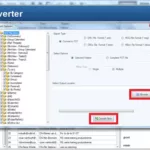
Factors That Make Construction Payroll Difficult
Cutting checks for employees is only one aspect of payroll. It’s an integral business process that requires compliance with laws and regulations. Managing payroll for construction companies can be particularly challenging due to prevailing wage work and other requirements such as certified payroll reporting. Here are the top things that make payroll for construction a challenge.

Multiple Locations
If your construction company has employees working at different locations or if you have multiple projects going at once, it can take time to track time accurately. Specialized payroll software that supports multi-location payroll can help you streamline the process of managing multiple projects and locations from one place. It can also help you reduce the chaos that results from misaligned employee schedules.
In addition, choosing a software solution like Roll by ADP that handles payroll taxes can save you money and stress. A reputable provider will automate the deductions and filings for you and alert you to compliance issues. Some providers can integrate with more than 500 business apps. It can make them a good fit for construction companies that use software. Others offer a full-service payroll that works across 50 states. It can also handle federal and state tax filings, although the cost for end-of-year reports is extra.
Time Tracking
When tracking your crew’s time, you must ensure they are clocking incorrectly. The best way to do this is using a scalable employee time tracker designed for construction companies’ unique needs. For example, you may need to be able to track hours by site, project, or even crew. These features help to prevent errors and allow you to maximize your productivity. The old saying that “time is money” could never be more true than on the job site of a construction company. In a fast-paced environment, you must always know what your workers are up to. Many construction employees are paid by the hour, and having an accurate tracking system can save you money in the long run.
A good solution is to use a mobile time-tracking app that records employee attendance, generates reports, and sends invoices automatically. It eliminates paper, reduces the need for manual data entry, and provides digital audit trails that minimize the risk of compliance issues. It’s also important that the solution you choose can handle other payroll-related functions such as calculating taxes, filing tax returns, preparing certified payroll reports, fringe benefits management, and union reporting.
Unions
The construction industry is full of unions, which can create several payroll management issues. For one, ensuring that union employees are properly tracked and their hours are accurate is important. In addition, many unions require additional reporting, which can be very time-consuming and stressful to keep up with. Knowing each project’s different wage determinations and reporting requirements is also important. Keeping up with these requirements is an ongoing task, and falling behind can have serious legal and financial consequences.
For all these reasons, you’ll want to find a payroll service specializing in the construction industry. It will ensure that your payroll is accurate, up-to-date, and compliant with local laws. The right solution will also provide tools like multiple pay rates for different projects or states, job costing, and certified payroll reports. As a result, payroll for construction can be complicated, and securing the right technology is critical to making it easier. Thankfully, with the help of automation, new technology like time tracking apps, and experienced third parties, it’s possible to streamline the process and ensure that payroll is accurate and on time each week.
Prevailing Wages
Prevailing wages are the hourly rates paid on specific construction projects in a given location. They are set by the government and based on available data, including wage surveys of local occupations, in-house payroll data and project-specific wage determinations. Contractors that work on prevailing wage projects must track the hours worked, verify the hours, and issue pay for each task and every role. They must also complete a certified payroll report submitted weekly to the relevant government agency. The anti-prevailing wage movement is built almost exclusively upon a single argument: higher wages mean higher taxpayer costs. However, that conclusion is based on flawed empirical methodology.
When you calculate the gross wages for a worker, you must factor in overtime wages and benefits like health insurance and pension contributions to arrive at net wages or take-home pay. Once you’ve determined those figures, the next step is determining the appropriate deductions for each employee. It can be not easy, especially when handling intricate prevailing wage regulations and necessary payroll certification paperwork. Using self-service payroll technology for your employees can save you time and money in the long run. It reduces the need for HR and payroll teams to juggle employee requests, information updates, and questions about their paycheck. It also creates digital audit trails that significantly reduce your liability around the payroll process. It’s also more convenient for your employees as they can easily access their pay by checking their accounts online or having a check deposited directly into their bank account.















